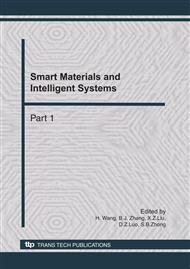p.527
p.533
p.538
p.543
p.547
p.552
p.557
p.562
p.566
Immune-Inspired Quantum Genetic Optimization Algorithm and its Application
Abstract:
Artificial immune systems (AIS), inspired by the natural immune systems, are an emerging kind of soft computing methods. This paper brings forward an immune-inspired quantum genetic optimization algorithm (IQGOA) based on clonal selection algorithm. The IQGOA is an evolutionary computation method inspired by the immune clonal principle of human immune system. To show the versatility and flexibility of the proposed IQGOA, some examples are given. Experimental results have shown that IQGOA is superior to clonal selection algorithm and Genetic Algorithm (GA) on performance.
Info:
Periodical:
Pages:
547-551
Citation:
Online since:
October 2010
Authors:
Price:
Сopyright:
© 2011 Trans Tech Publications Ltd. All Rights Reserved
Share:
Citation:


